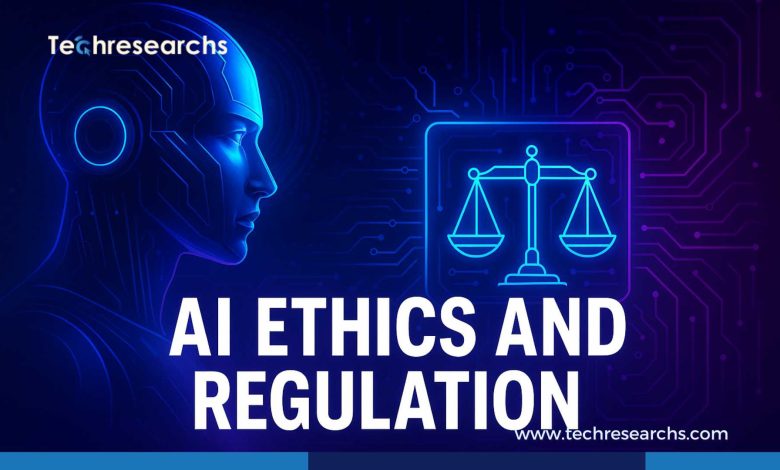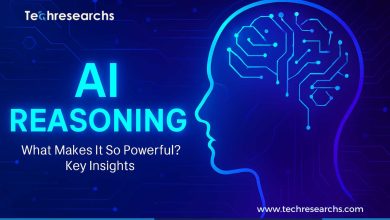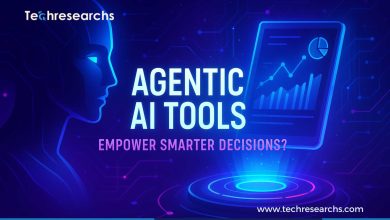AI Ethics and Regulation: Why the World Must Act Now

The rapid growth of artificial intelligence is reshaping industries, governments, and daily life. But with this explosive advancement comes a pressing question: Are we ethically and legally prepared to handle it? AI Ethics and Regulation has become a global concern, impacting everything from data privacy to autonomous decision-making. As technology outpaces legislation, experts argue that acting now is not optional—it’s essential.
What Is AI Ethics and Regulation?
AI Ethics and Regulation refers to the frameworks, principles, and policies that govern how artificial intelligence systems are designed, deployed, and managed. It ensures AI operates within boundaries that are:
- Ethically sound
- Legally compliant
- Societally beneficial
This includes addressing issues like algorithmic bias, transparency, accountability, and privacy protection.
Why AI Ethics and Regulation Matter Now More Than Ever
The urgency stems from how quickly AI is evolving. From ChatGPT to autonomous vehicles and facial recognition, AI is becoming central to critical infrastructure.
Here’s why swift regulation is necessary:
- Prevent Bias and Discrimination: Algorithms often mirror the biases present in their training data.
- Ensure Data Privacy: Sensitive data processed by AI must be protected under clear laws.
- Maintain Accountability: When AI fails, who is responsible? Human oversight is vital.
- Support Safe Innovation: Balanced regulation can fuel responsible development instead of stifling it.
The Global Landscape of AI Ethics and Regulation
Several countries are drafting or enforcing AI-specific regulations. Here’s a snapshot of current efforts:
1. European Union
The EU AI Act is a comprehensive law categorizing AI risk levels and assigning compliance standards. Source: European Commission.
2. United States
The U.S. uses a sectoral approach, with agencies like the FTC and FDA addressing AI in healthcare, advertising, and finance.
3. India
India is focusing on responsible AI through guidelines from NITI Aayog, aiming to ensure inclusion, transparency, and ethics in AI systems.
These varying approaches show the need for global cooperation to build universal standards.
Challenges in Enforcing AI Ethics and Regulation
Despite good intentions, creating enforceable AI laws isn’t easy.
Key Obstacles:
- Rapid Technological Change
- Lack of Technical Expertise in Policymaking
- Inconsistent Global Standards
- Corporate Resistance to Oversight
AI Ethics vs. AI Regulation: What’s the Difference?
Here’s a quick comparison to clarify:
| Feature | AI Ethics | AI Regulation |
|---|---|---|
| Nature | Philosophical, moral guidelines | Legal and enforceable rules |
| Goal | Promote responsible AI behavior | Ensure safety, fairness, and compliance |
| Who Defines It | Academics, researchers, public interest | Governments, policymakers |
| Flexibility | High | Moderate to low |
How AI Ethics and Regulation Impact You
Even if you’re not a developer or policymaker, AI Ethics and Regulation affects your life:
- Data Privacy: Your health and financial records may be analyzed by AI.
- Job Automation: AI could replace or reshape your career.
- Social Media Influence: Algorithms impact what you see and believe.
Without strong regulation, these systems could exploit more than they help.
India’s Role in Shaping Global AI Ethics and Regulation
India, home to a massive tech talent pool, is positioned to influence global AI governance. Recent collaborations with OECD and G20 discussions show its commitment to fair and inclusive AI practices.
Key focus areas include:
- Reducing algorithmic bias in government welfare delivery
- Promoting open-source AI tools for transparency
- Setting ethical standards for AI use in education and healthcare
What Needs to Happen Next?
To secure a safer AI future:
- Governments must pass enforceable, globally-aligned AI laws
- Companies must embrace transparency and fairness
- Citizens must stay informed and demand ethical technology
Table (Comparison: Ethical vs. Unethical AI Practices)
| Practice Type | Ethical AI | Unethical AI |
|---|---|---|
| Data Use | Informed consent, anonymized data | Unauthorized data mining |
| Algorithm Design | Inclusive, bias-checked datasets | Discriminatory outputs |
| Transparency | Open-source models, explainability | Black-box systems |
| Accountability | Clear human oversight | No clear ownership or review |
| Impact on Society | Enhances trust and fairness | Damages user rights and public trust |
AI Ethics and Regulation isn’t just a buzzword—it’s a global necessity. As AI continues to power everything from our phones to our healthcare systems, the world must move faster to build legal, ethical, and practical guardrails.
The future of AI must be safe, fair, and accountable. And that future begins with smart, enforceable regulation—now.
FAQs About AI Ethics and Regulation
1. Why is AI Ethics and Regulation important?
A. It ensures AI technologies are used fairly, transparently, and without harming individuals or society.
2. What are some real-world examples of AI regulation?
A. The EU AI Act, U.S. agency guidelines, and India’s NITI Aayog recommendations are key examples.
3. How does AI Ethics differ from AI Regulation?
A. Ethics guides what should be done, while regulation enforces what must be done legally.
4. Who is responsible for AI Ethics and Regulation?
A. Governments, tech companies, researchers, and civil society all share responsibility.



